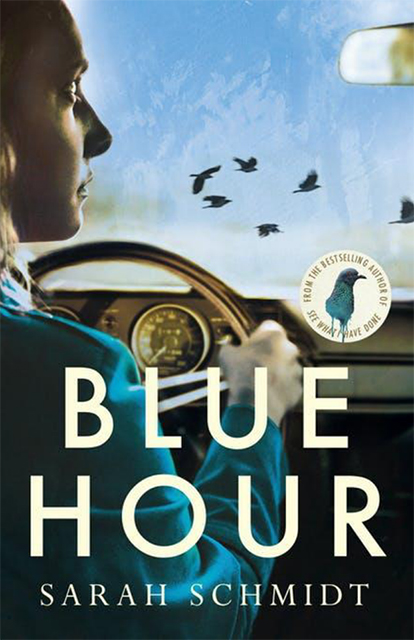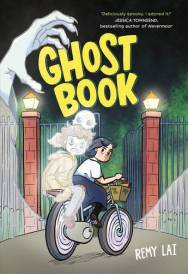Blue Hour

From the internationally bestselling award-winning author of See What I Have Done comes the vivid, deeply affecting
and confronting new novel Blue Hour
1936: At nineteen, Kitty was ready to leave behind the stifling control of her parents and all those constantly telling her how to live her life. Work at the Wintonvale Repatriation Hospital was her escape and a chance to be someone else.
Then she met soldier George Turner - and she heard her mother's voice in her ear, warning of danger, of being that girl. Kitty told herself if she ever had her own daughter she'd never control her. She'd make sure her voice never left a mark behind. 1973: Growing up, Eleanor's home was strained by sorrow and the echoes of war that silenced her parents. And always her mother, Kitty's, bitterness, twisting and poisoning everything she touched. She thought she knew what made her parents this way ... but Eleanor would never know all her mother's secrets.
Powerfully magnifying the fractures between a mother and a daughter, it reveals the brutal cost when we allow grief and trauma to reach down generations.
Blue Hour
Hachette Australia
RRP: $32.99
After completing a Bachelor of Arts (Professional Writing and Editing), a Master of Arts (Creative Writing), and a Graduate Diploma of Information Management, Sarah currently works as a librarian in a public library. Her debut novel, See What I Have Done, was an international publishing sensation. Longlisted for the Women's Prize for Fiction 2018 and the International Dublin Literary Award 2019, in Australia it won the ABIA Literary Fiction Award and the MUD Literary Award 2018, was shortlisted for the Indie Book Award for Debut Fiction 2018, The Ned Kelly Award for Best First Crime Novel 2018, the Strand Critics Award for Best First Novel 2018, the Davitt Award for Debut Crime 2018 and was longlisted for the ABIA Matt Richell Award for New Writers 2018. Blue Hour is her eagerly awaited second novel. Sarah lives in Naarm/Melbourne.
Interview with Sarah Schmidt
What originally inspired the idea of Blue Hour?
Blue Hour initially began as a very vivid, strange dream I had about a woman driving toward mountains. She kept looking in the rear view mirror and so in the dream, I did too, and on the backseat of the car was an infant. When I woke up I realised I was having a miscarriage and from there I couldn't stop thinking about that woman in the dream and what the whole experience meant.
How did you develop your approach to dealing with such intense topics?
In the beginning there was a lot going on in my life while writing this book. When I started writing I had very clear ideas about what I wanted my characters to do, what I thought the story was about, but every time I sat down to write I couldn't help but express the feelings and experiences I was having at the time and so I let myself go to the dark and intense places I needed to explore. It was personally and creatively liberating but very painful to do that and I had a lot of therapy to deal with it all. Through that process I realised this book was partially about the need for humans to be vulnerable and honest in order to heal from their past.
What did you learn, about yourself, whilst writing Blue Hour(book title)?
I learnt way too much… and it wasn't all pretty! The one thing I discovered is how truly uncompromising I can be. Not so much as someone who can't admit they're wrong or compromise when they have to but rather someone who could no longer play pretend. It was killing me. And so I decided I wouldn't compromise who I needed to be personally or creatively.
How much of your inspiration comes from real life and real people?
Writers almost always borrow from real life and I borrowed from my own often when I felt it was right for the novel. But I also researched quite a few aspects of the novel (such as the psychology of war, animal behaviour and so on) and found through this process, I could add nuance to my characters which then opened up more storytelling possibilities.
Was were some of the difficulties you faced whilst writing Blue Hour?
One of the biggest difficulties was working my way through the first draft (which felt unbelievably insurmountable) while also recovering from a breakdown. Everything felt too much, felt too confronting. But I kept writing because I didn't know what else to do and I was afraid of what would happen if I did stop writing.
At times it felt as if I was living inside the novel. I think a part of me wanted to live with these characters because I could identify with them and loved them to a degree. And yet. Being with them was excruciating.
Suffice to say I don't think I'll write another book in the same way again for a little while!
What's the main message you hope readers take from Blue Hour?
I want people to walk away from this novel knowing that it's ok to talk about the dark and hidden things, it's ok to be vulnerable.
What research did you do, prior to writing Blue Hour into wartime lifestyle?
I've always been interested in learning about periods of war especially the impact it has on those who fight and those who then have to live with the aftermath of war. Even in high school I was reading poetry written by soldiers on the front lines and first hand accounts of victims of war because I wanted to understand the human realities. When governments talk about war and the sacrifices made, it feels so hollow: it diminishes the horrors.
What advice do you have for aspiring writers or artists?
You'll spend a lot of time on your own making your art and that's when the self doubt you'll inevitably feel will hit and tell you to give up: that's why it's so important to create what you're passionate about. Do it for yourself. You're worth every hour you pour into your art.
What or who inspired your love of reading/writing?
When I was very little I would make up stories to delay going to bed and I knew if the story was good because my parents would let me stay up a bit longer and tell another. I must've realised then that stories are powerful… and maybe I could use them to get a reaction from people.
What's next, for you?
I'm in the very early stages of working on a new novel. I'm not entirely sure what it wants to be at this stage but I do know this: it's about a child who happens to be a monster…





